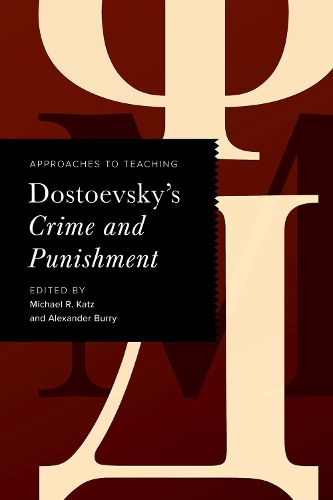Readings Newsletter
Become a Readings Member to make your shopping experience even easier.
Sign in or sign up for free!
You’re not far away from qualifying for FREE standard shipping within Australia
You’ve qualified for FREE standard shipping within Australia
The cart is loading…






Recounting the murder of an elderly woman by a student expelled from university, Crime and Punishment is a psychological and political novel that portrays the strains on Russian society in the middle of the nineteenth century. Its protagonist, Raskolnikov, moves in a world of dire poverty, disillusionment, radicalism, and nihilism interwoven with religious faith and utopianism. In Dostoevsky’s innovative style, which he called fantastic realism, the narrator frequently reports from within the protagonist’s mind. The depiction of the desperate lives of tradespeople, students, alcoholics, prostitutes, and criminals gives readers insight into the urban society of St. Petersburg at the time.
The first part of this book offers instructors guidance on Russian editions and English translations, a map of St. Petersburg showing locations mentioned in the novel, a list of characters and an explanation of the Russian naming system, analysis of key scenes, and selected critical works on the novel. In the second part, essays address many of Dostoevsky’s themes and consider the role of ethics, gender, money, Orthodox Christianity, and social justice in the narrative. The volume concludes with essays on digital media and film adaptations.
$9.00 standard shipping within Australia
FREE standard shipping within Australia for orders over $100.00
Express & International shipping calculated at checkout
Recounting the murder of an elderly woman by a student expelled from university, Crime and Punishment is a psychological and political novel that portrays the strains on Russian society in the middle of the nineteenth century. Its protagonist, Raskolnikov, moves in a world of dire poverty, disillusionment, radicalism, and nihilism interwoven with religious faith and utopianism. In Dostoevsky’s innovative style, which he called fantastic realism, the narrator frequently reports from within the protagonist’s mind. The depiction of the desperate lives of tradespeople, students, alcoholics, prostitutes, and criminals gives readers insight into the urban society of St. Petersburg at the time.
The first part of this book offers instructors guidance on Russian editions and English translations, a map of St. Petersburg showing locations mentioned in the novel, a list of characters and an explanation of the Russian naming system, analysis of key scenes, and selected critical works on the novel. In the second part, essays address many of Dostoevsky’s themes and consider the role of ethics, gender, money, Orthodox Christianity, and social justice in the narrative. The volume concludes with essays on digital media and film adaptations.